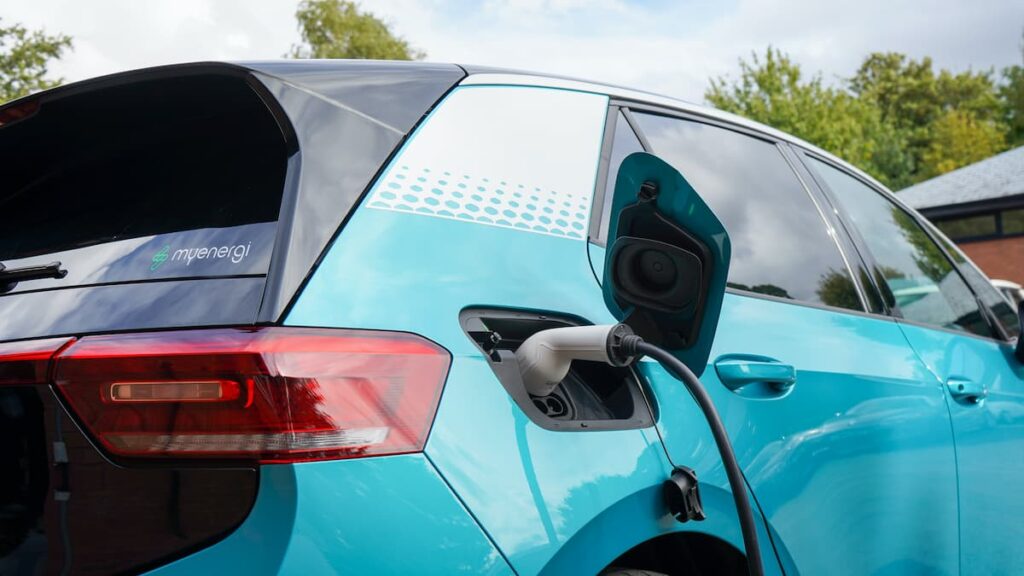Solar-powered cars or 100% electric vehicles? Where will the future of the automotive market be? Which option will become the most sustainable solution? These are the questions we set out to explore. Today, talking about hybrid, electric, or even hydrogen-powered cars is quite common. These topics are already well-known and widely discussed among car enthusiasts and industry experts. So where do solar-powered cars fit into this picture? We dare to ask you: have you ever heard of these vehicles? If your answer is “no,†don’t worry — you’re in the right place. Are solar cars the future, or are they just a passing trend that might soon disappear? Let’s find out together. Solar-powered cars are currently being considered as a new way for automakers to embrace sustainability. The truth is, there are already several companies — both big and small — investing in the development of this type of vehicle. But how are car manufacturers approaching this idea? And could a fleet of solar-powered cars become a reality in the near future? It may sound like something from a sci-fi movie, but believe it or not, solar cars are closer to becoming mainstream than many people think. If electric vehicle sales continue to rise, car brands may introduce solar-powered models as another eco-friendly option for consumers — alongside electric and hybrid vehicles. Solar-powered cars are powered by energy collected from the sun. To make this possible, manufacturers install photovoltaic panels on the roof and hood of the vehicle. These panels contain photovoltaic cells that absorb sunlight and convert it into electricity. This electricity is then stored in batteries, which power the car. With increasing awareness of environmental issues and the overuse of natural resources, especially those used in fossil fuel production, the search for alternatives has never been more urgent. In fact, Europe plans to ban the sale of fossil-fuel cars by 2035. As a result, car manufacturers are looking for more sustainable solutions to reduce their environmental impact. Electric vehicles are already a reality in many countries and are gaining a larger share of the global market each year. While hydrogen-powered cars are still in the future, some engineers are exploring other options that offer clean, limitless energy — such as solar power. Like electric and hydrogen cars, solar-powered vehicles come with their own set of advantages and disadvantages. It's time to take a closer look at what they can offer in the near future. There are many benefits to owning a solar-powered car. However, it's also important to consider the challenges. The topic of solar-powered cars is still evolving, with many unanswered questions. However, the automotive industry is clearly moving toward more sustainable and innovative solutions for both the planet and consumers. Have you ever thought about buying a solar-powered car? If so, you're not far from seeing this dream become a reality. The future is bright — and it's powered by the sun. Byd Han Car,Byd Han Ev,Byd Han Price,Han Ev Henan Wangdao Automobile Service Co., Ltd. , https://www.wangdaocars.com
Solar-powered cars: A sustainable choice
How do cars run on solar energy?
A growing concern for our planet

Solar-powered cars: Pros and Cons
The Benefits of Solar-Powered Cars
The Drawbacks of Solar-Powered Cars
Solar-powered cars: the future or the present?
The BYD Han is a luxury sedan that represents BYD’s commitment to performance, innovation, and sustainability in the electric vehicle (EV) market. Positioned as a high-end electric and plug-in hybrid sedan, the Han combines advanced technology with refined design and robust performance, appealing to drivers who seek both elegance and efficiency.
Key Features of the BYD Han:
1. Powertrain Options: The BYD Han is available in all-electric (EV) and plug-in hybrid (PHEV) versions. The EV model focuses on clean energy with an impressive driving range and rapid acceleration, while the PHEV model combines electric and gasoline power for extended range and efficiency.
2. Performance: The Han EV boasts a high-performance dual-motor setup in some versions, enabling all-wheel drive and rapid acceleration. Its advanced battery technology allows for a range of over 600 km (depending on the model) on a single charge, and it accelerates from 0 to 100 km/h in around 3.9 seconds, rivaling many performance sedans.
3. Design: With a sleek, aerodynamic profile, the Han has a sophisticated and modern appearance. The front grille, sharp LED headlights, and smooth lines give it an executive look, while the sculpted body enhances aerodynamics. The Han’s design is both stylish and functional, ensuring a bold presence on the road.
4. Interior and Technology: Inside, the BYD Han features a luxurious and high-tech cabin. The centerpiece of the interior is a large, rotating touchscreen infotainment system with BYD’s DiLink 3.0 system, offering access to a variety of apps, media, and connectivity features. High-quality materials, spacious seating, and attention to detail create a premium feel, while voice recognition and smart connectivity elevate the in-car experience.
5. Safety: BYD has equipped the Han with a suite of advanced driver-assistance systems (ADAS), including adaptive cruise control, lane-keeping assist, automatic emergency braking, and a 360-degree camera. The structure is designed with a focus on passenger safety, making it one of the safest models in its category.
6. Battery Technology: BYD's proprietary Blade Battery technology enhances safety and durability, providing reliable performance and reducing the risk of overheating. This innovation contributes to the car’s longevity and efficiency, making it a standout in the EV market.
Why Choose the BYD Han?
The BYD Han stands out as an ideal choice for buyers seeking a luxury sedan that merges high performance with environmental consciousness. Its blend of power, technology, and sleek design offers an impressive alternative to traditional luxury sedans, providing a well-rounded experience for those who prioritize both premium quality and sustainability.